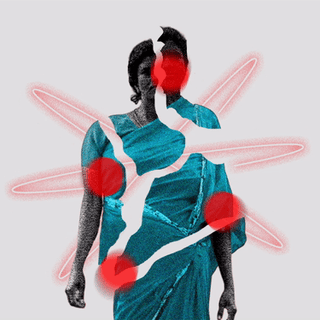
Transgender Youth More Likely to Have Sleep Disorders: Study
Gender-affirmative therapy may have a protective effect on declining sleep health among transgender youth, researchers say.

Transgender or gender non-conforming teenagers and young adults are four times more likely to have a sleep disorder as compared to cisgender youth, says a new study led by Michigan Medicine at the University of Michigan. Specifically, the researchers found that transgender youth are 5.4 times more likely to have insomnia and three times more likely to have sleep apnea or other disorders.
The researchers also analyzed the links between gender-affirming therapy and sleep disorders, finding that gender-affirmative therapies seem to have a “protective” effect against deteriorating sleep health brought on by “psychological stressors from prejudice and discrimination against the transgender community.”
The team analyzed claims data from 1.2 million youth aged between 12 and 25 years, sourced from a large US-based administrative claims database. Of these, 2,603 individuals identified as transgender or gender-nonconforming. Examining the relationship between transgender identity, transition and sleep disorders, the team published their retrospective cross-sectional study in the Journal of Clinical Sleep Medicine.
The researchers suggested that poor mental health may be a contributing factor to the prevalence of sleep disorders. “Transgender and gender-nonconforming identity may precede mental health disorders and both influence insomnia diagnosis,” said Galit Levi Dunietz, an author of the study. Transgender and non-binary youth are disproportionately burdened by poor mental health, due to decreased social support, stigma and discrimination, noted an observational study published earlier this year.
Recognizing the lack of clarity about the role of gender-affirmative therapy in sleep disorders, the research team set out to explore this potential relationship. More than half the transgender youth part of the study had pursued gender affirmative therapy. This group, the researchers noted, was “half as likely to have any sleep disorder than transgender individuals who did not pursue the therapy.”
Based on these findings, the researchers concluded that gender-affirming therapy could potentially have a protective effect against declining sleep health, attributable to the positive long-term mental health implications of pursuing affirmative care. The 2022 observational study, in fact, associated gender-affirming medical interventions with “lower odds of depression and suicidality” in the first 12 months after therapy as well.
“As mood disorders and insomnia have a bidirectional relationship, gender transition through affirming therapies could improve mental health, which, in turn, may decrease the proportion of insomnia by improving gender dysphoria, poor mood and minority stress,” Gavidia said.
Related on The Swaddle:
What It’s Like to Live With: Chronic Sleeplessness
Previous research has associated poor sleep with a higher risk of several chronic health conditions including hypertension, stroke, cardiovascular disease and diabetes. Sleep disturbances and poor sleep quality have also been linked with psychiatric disorders. This relationship is considered to be one of “bi-directional causation,” where mental health conditions – such as depression and anxiety symptoms – may lead to poor sleep, while those suffering from sleep disorders may, in turn, experience a deterioration in mental health.
Sleep disorders are emerging as a public health concern due to their high prevalence across the globe. It is estimated that around 70 million people in the United States suffer from chronic sleep problems. Meanwhile, the global prevalence of sleep apnea stood at 936 million in 2019, among adults aged between 30 to 69 years. However, most research on sleep disorders remains concentrated on the adult and elderly population, with few studies looking at sleep disorders among the youth.
Even within this small selection of studies, sleep health has rarely been explored in transgender and non-binary individuals. A 2020 study noted that the dearth of research on sleep disparities among gender and sexual minority groups, reflects the larger trend in research where transgender and non-binary individuals remain understudied or are grouped with other minorities – a problematic reduction that ends up neglecting their specific needs and experiences.
“Given this higher prevalence of sleep disorders in relation to cisgender youth, clinicians should consider screening and testing this population for such disorders,” said Ronald Gavidia, first author of the study.
Thus, the latest study does not only reveal the high prevalence of sleep disorders among gender-nonconforming youth, but also points out linkages between gender identity, mental health and sleep quality. While the team suggested a positive impact of gender-affirming therapy on sleep health, the authors noted that further research must examine the burden of sleep disorders in transgender and gender-nonconforming youth both before and after gender-affirming therapy to clearly establish this link.
Ananya Singh is a Senior Staff Writer at TheSwaddle. She has previously worked as a journalist, researcher and copy editor. Her work explores the intersection of environment, gender and health, with a focus on social and climate justice.
Related


Are Differences in Sex Hormones Behind the High Prevalence of Autoimmune Disorders Among Women?
